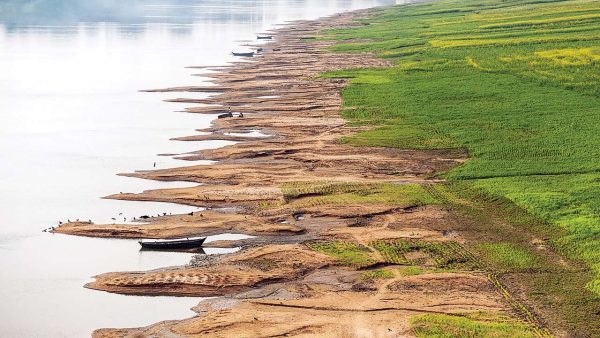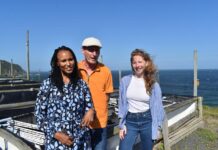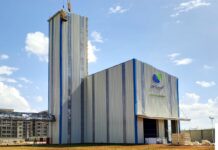Benin and Togo are set to receive a total US $36million from the International Development Association (IDA) to assist in curbing coastal erosion.
Coastal erosion affects all West African countries. Benin and Togo are among those most affected by the phenomenon. According to a study published in 2019 by the World Bank, Benin is losing an average of 4m of shoreline per year on 65% of its coastline. Togo is losing an average of 10m of shoreline each year. The cause is the general rise in sea level, accentuated by climate change. Added to this is the action of man on mangrove ecosystems.
The funding is intended to carry out various works in the two countries, in particular the filling of deserted lagoon arms. Part of the funding is dedicated to the filling of deserted lagoon arms in the eastern part of the Grand-Popo estuary in Benin, as well as to the construction of protective groins. These rigid hydraulic structures are built at the ocean’s edge or on a river bank to slow down water currents and limit sediment movements.
Resilient agriculture
The IDA funding will also be used for the recharging of 6.4 million m3 of sand in the Agoué district and the construction of bicycle paths and car parks in Agoué and Hillacondji. In Togo, the IDA credit will be used for the construction and expansion of groynes in Agbodrafo and Aného, the filling of deserted lagoon arms east of the mouth in Aného, and the construction of bicycle paths and car parks in Agbodrafo and Sanve-Condji.
IDA allocated its funding under the West African Coastal Management Programme (Waca). Launched on November 30th, 2018 in Dakar (Senegal), Waca also provides for the development of resilient agriculture. 3,000 households also will be protected from flooding, thanks to the storm water basins.
These populations will also benefit from the creation and operation of seven pilot units for processing local products. The programme is financed by the World Bank, the Global Environment Facility (GEF) and the Togolese government for an amount of 47.3 million euros. The programme’s activities are carried out in six West African coastal countries, namely Benin, Ivory Coast, Mauritania, Sao Tomé Principe, Senegal and Togo.








